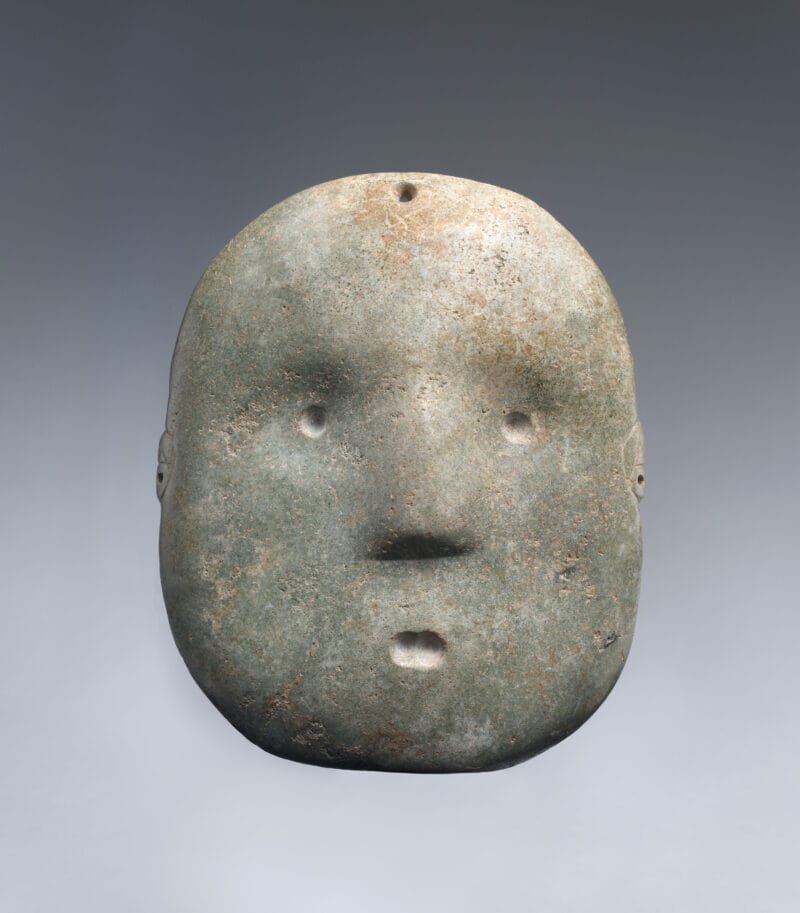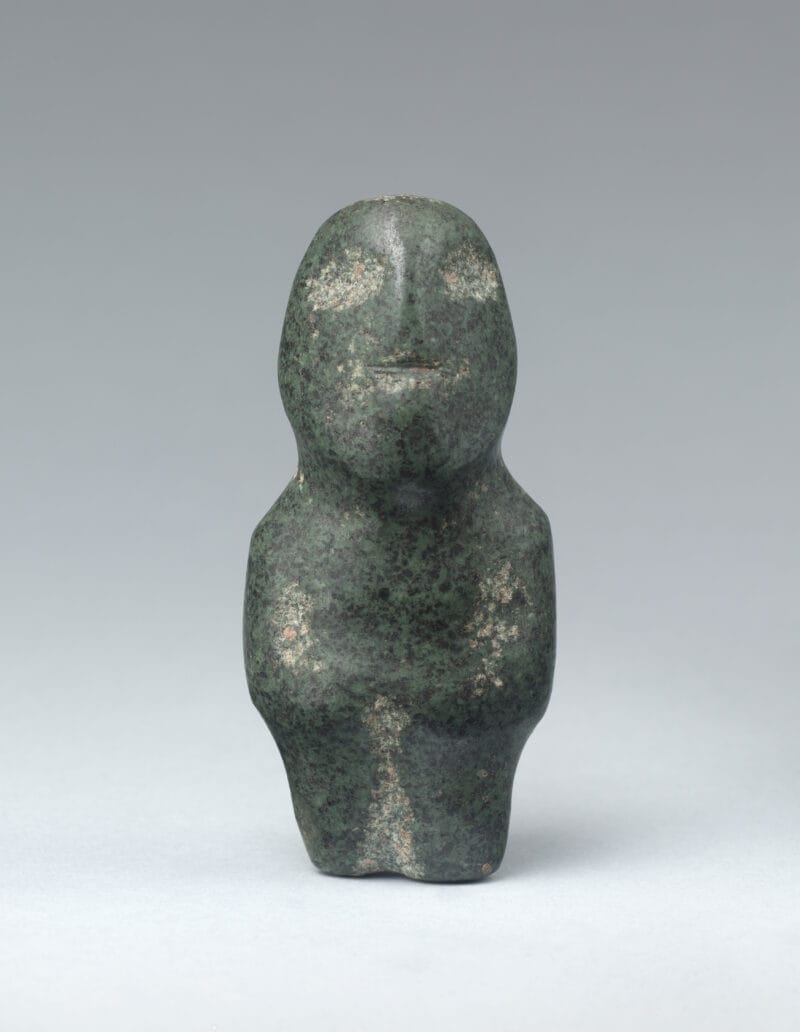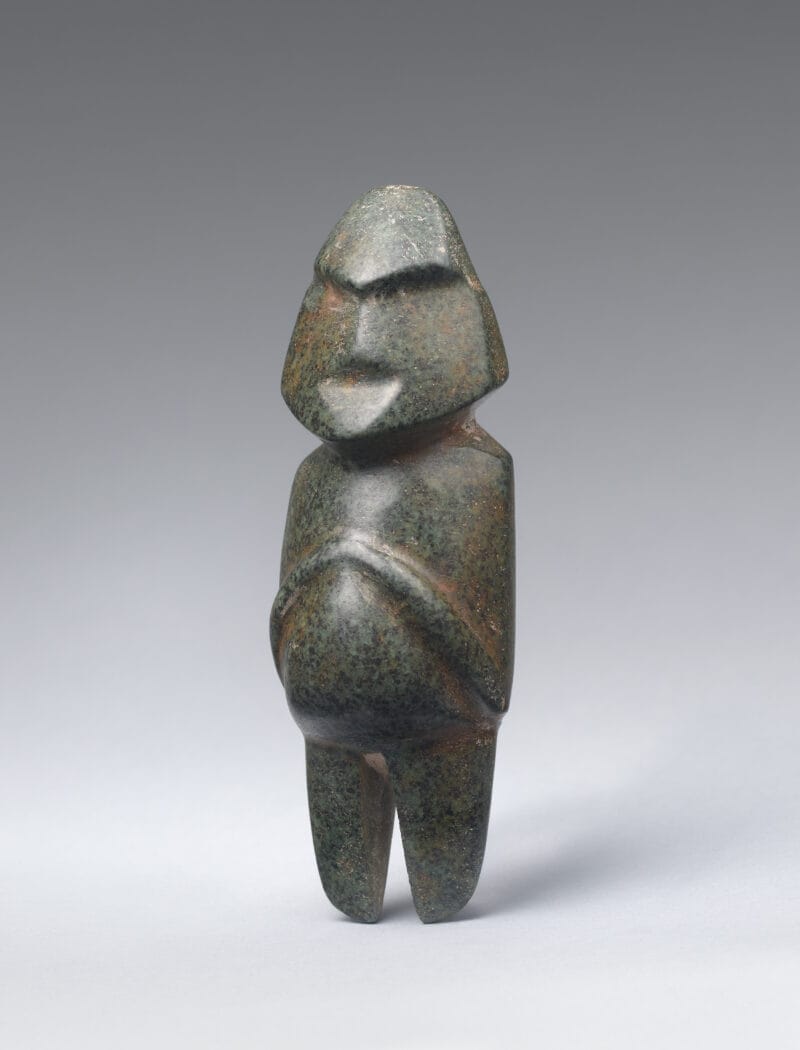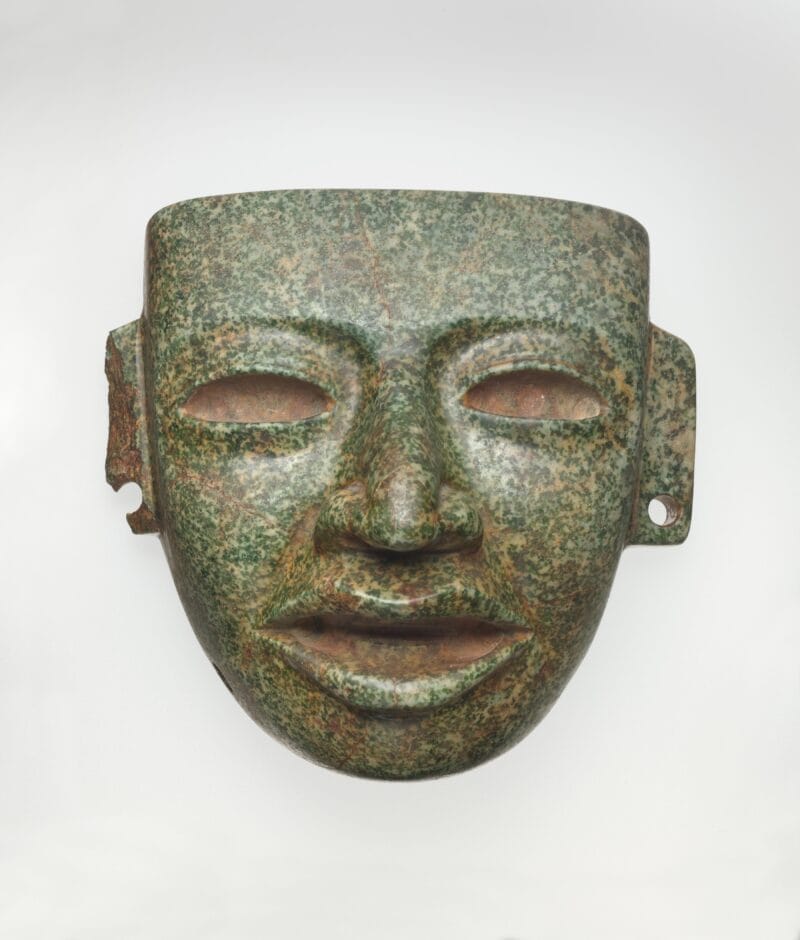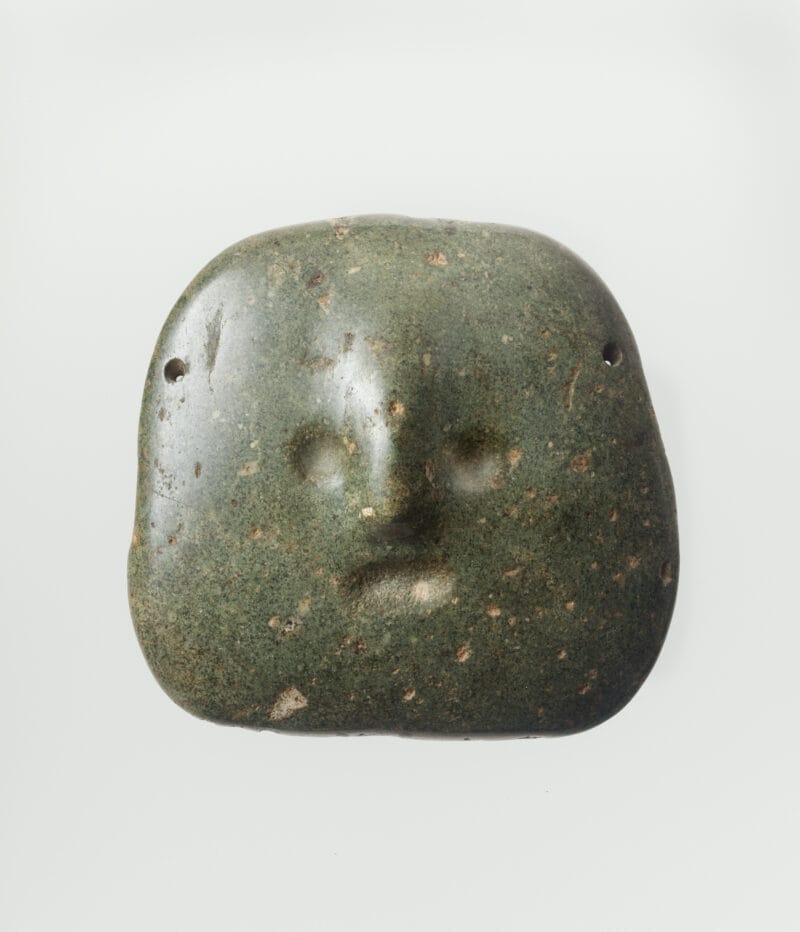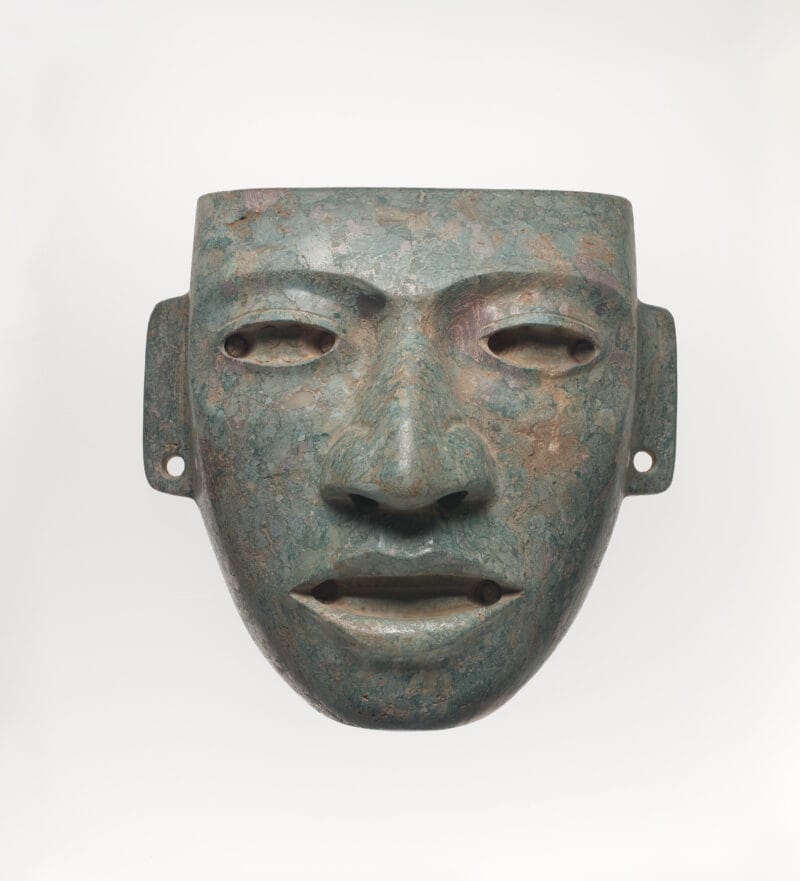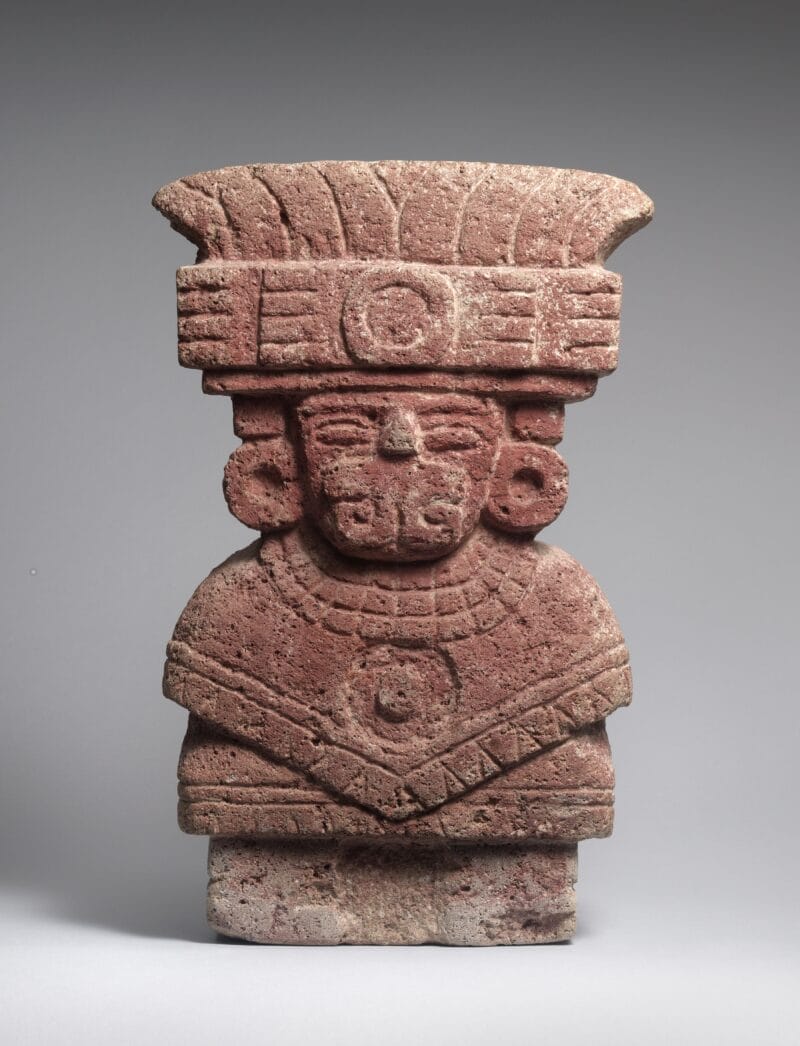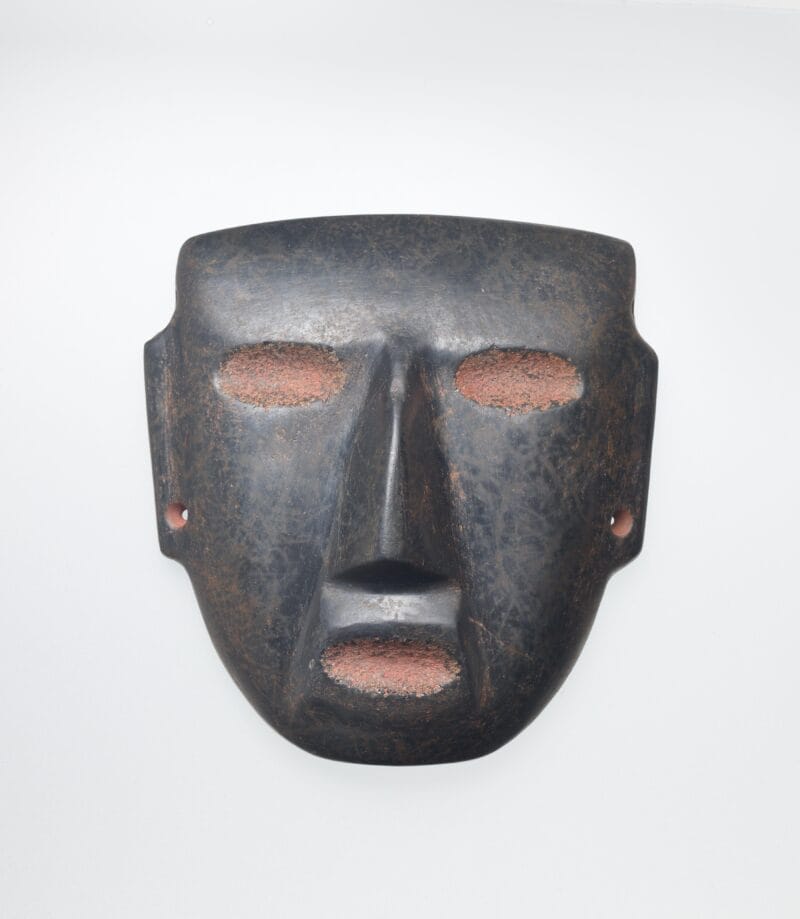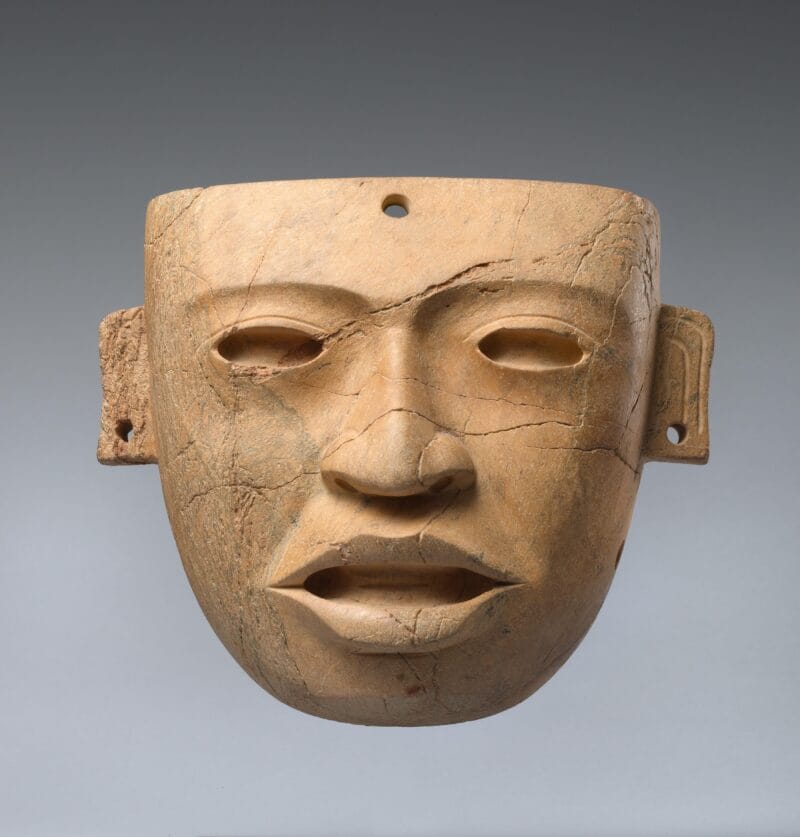
About the Object
This naturalistic mask with large eyes, broad nose, and mouth open, as if frozen in speech, displays the remarkable ability of Teotihuacan artists to fashion stone using techniques developed and refined over centuries. Created from light brown serpentine or limestone, the mask was probably not worn in rituals due to the shape and weight of the work. Rather, it appears likely that it would have been a “death mask” placed over the face of elite individuals and attached through holes in the work’s ears to prepare them for their journey to the afterlife.
Additional Information
From about 100 BCE until 200 CE, the monumental city of Teotihuacan arose in the Valley of Mexico. It would eventually become one of the largest urban settlements in the pre-colonial Americas with a population of approximately 200,000 inhabitants, who helped to construct its magnificent architecture, including some of the largest pyramids on Earth. Such structures were built over caves perceived to be entrances to the underworld. Funeral masks were sometimes adorned with metal (probably iron-pyrite) inlaid eyes, teeth, and earrings. Through the creation of such works, the beliefs and authority of elites, as well as the permanence of Teotihuacan society, were displayed, reinforced, and reproduced.
[Throckmorton Fine Art, New York, NY];
The Jan T. and Marica Vilcek Collection, 2003-2010;
Gift to The Vilcek Foundation, 2010;
Related Objects
You may also be interested in
Juan Pablo Contreras composes classical music with the sounds of Mexico

Rodrigo Prieto: “Being a foreigner gives you a certain perspective”

Juan Pablo Contreras


